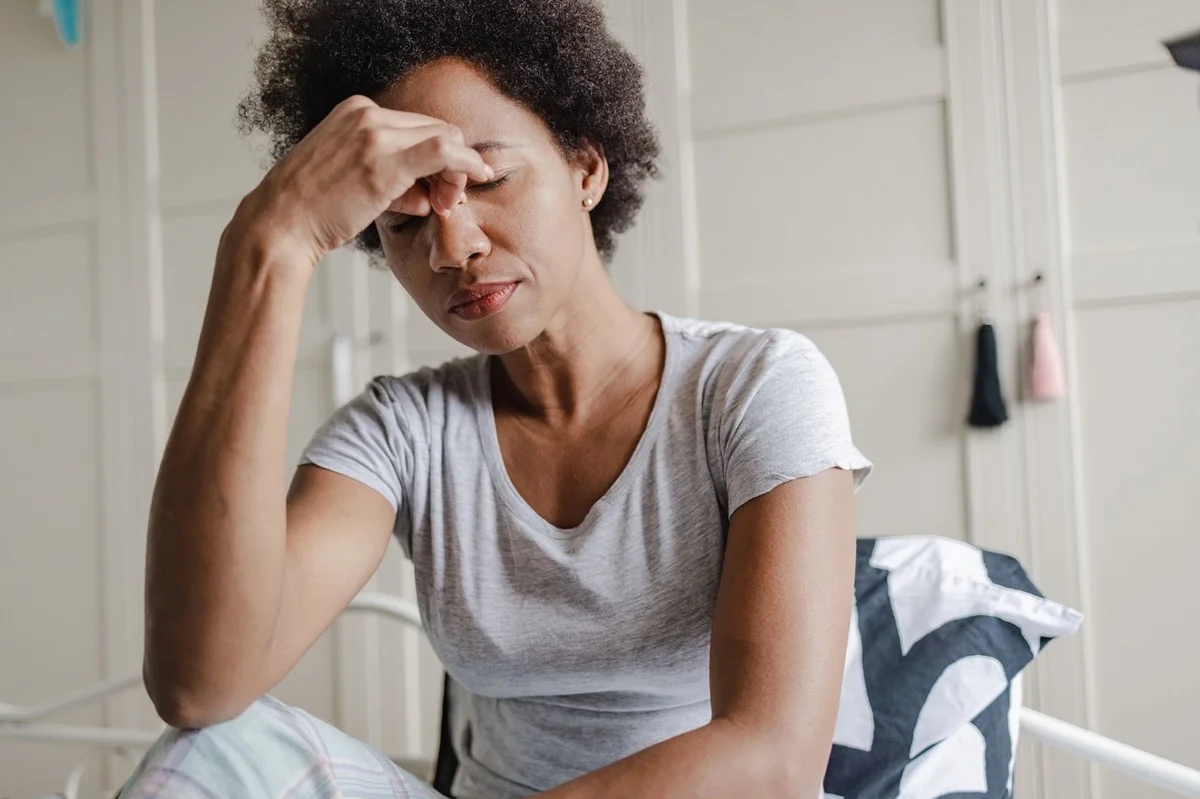Mary Young, a Georgia-based mental health first aid trainer, lived an energetic life until one day she wasn’t.
“Looking back through my Facebook memories, I could see that 2015 brought many bouts of sickness that I didn’t even recognize at the time,” Young told NPR. This coincided with her increased travel and overtime hours as part of an attempt to prove herself to her new boss. Toward the end of 2015 she became very sick with influenza followed by another bout in January, then shingles and eventually a ministroke which had initially been misdiagnosed as vertigo.
Young’s experience of illness during a stressful period isn’t unusual, with women more likely to be affected than men. According to Linda Baggett, Ph.D., CEO of Well Women Psychology in California: “There may be many underlying reasons, but one primary one may be women are held to an inordinately high standard for perfection compared with their male counterparts; we expect our bodies, jobs and exercise routines to meet those standards that women expect of ourselves as mothers compared with the ones men face – although the latter do face greater demands than men relating to perfection as opposed to striving towards perfection than expected of themselves as mothers by society – which men do face some forms of pressure when it comes to work related matters alone compared with pressure related matters.”
Baggett noted that, in addition to stress, women often struggle with saying “no” and setting boundaries, leading them to work harder in order to be taken as seriously by bosses, doctors or others in authority figures’ offices or practices. “This adds another level of difficulty for marginalized identities like Blackness or disability.”
Stress doesn’t always have to be seen as negative; in fact, certain levels of it may actually help focus on completing difficult tasks, adapting to new environments or challenging yourself. When stressors go beyond normal levels and continue without interruption or are left unmanaged over time, their effects can manifest both emotionally and physically; in extreme cases this stress could even prove fatal.
Stress Can Affect Women
What effects does stress have on women’s bodies? Although you may not experience as severe physical symptoms as Young did, stress can still have devastating repercussions for health – leading to various symptoms including:
Headaches, Chest Pain, Muscle Tension & Pain, Fatigue and Stomach Discomfort all may contribute to Headaches. You could also suffer from Weight loss/gain and reduced sexual drive as a result. Finally Heart Disease may also cause decreases sex drive.
Delayed menstrual periods
“There may also be difficulty sleeping, difficulty shutting off the to-do list, and increased likelihood of illness from stress; stress really taxes your immune system.” Baggett advised.
Stress can also contribute to anxiety. Stress has external triggers like losing a job or being late for an appointment; anxiety, on the other hand, is your body’s internal reaction to stress. Many tips for managing stress also work to alleviate mild anxiety; for more intense forms of anxiety though professional help may be required to address them effectively.
Read “Thankful for Anxiety That Left Me Gasping for Air”
Women must learn to identify and control stress before it spirals out of control, according to Young. Although this might seem easier said than done, Young suggested taking small steps and starting slowly: “I had to realize I couldn’t do everything alone – it was difficult,” she admitted.
Young had been traveling frequently for work when she needed to take a break, then, after feeling she had recovered sufficiently, decided to travel regularly again – once a month starting July and lasting three days; by August however she told her boss she couldn’t go through with it anymore as any reserves built up from previous trips had been depleted in just one trip alone. Young also became adept at saying no and cancelling when an opportunity wasn’t beneficial.
After altering her routine to improve both sleep and nutrition, Young discovered that adding some exercise – although nothing radical – helped. “Over the last couple of years, I have become better about taking breaks to walk five or six laps around my backyard,” she noted. “Just being outside makes an immense difference.”
Young may not have realized it, but her daily backyard walks, saying no and sleeping more were part of an effective strategy for managing stress. According to Baggett, stress causes our minds to fill with thoughts. First take some deep breaths and slow down before asking yourself “OK what am I feeling, What are pressing me or What do I need right now.” This helps determine whether a break should be taken prior to proceeding further or if help may be required in completing tasks or whether further actions need to be taken against an issue altogether.
Baggett suggested finding what works for you – be it crying it out, going for a long walk, or simply spending some time outside – as an effective means of relieving stress. Baggett explained: “You cannot not take time for this.” If stress builds to an overwhelming point, illness or breakdown could occur as a result, she added.
April is Stress Awareness Month and presents an ideal opportunity to assess and reflect upon stressors in your life. The purpose is to increase public understanding of how stress impacts on body systems, how self-care helps manage it before it spirals out of control, and help people take steps to relax when possible. It provides an opportunity to slow down wherever possible!
Young said it takes small changes over time to adjust one’s approach to life and manage stress more effectively. Rehab had to remind him that SLOW doesn’t equal FAST.
